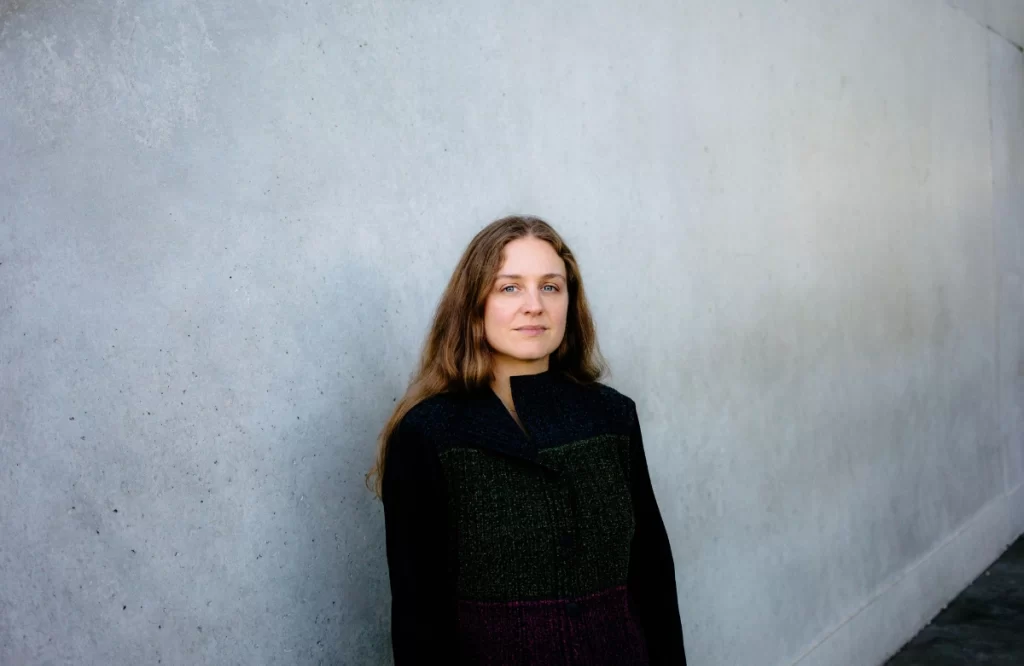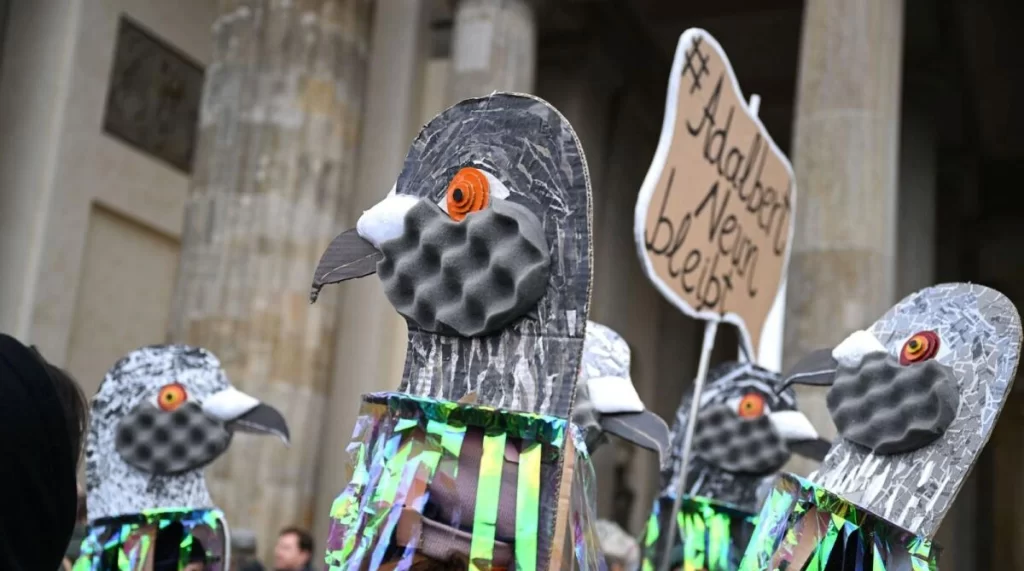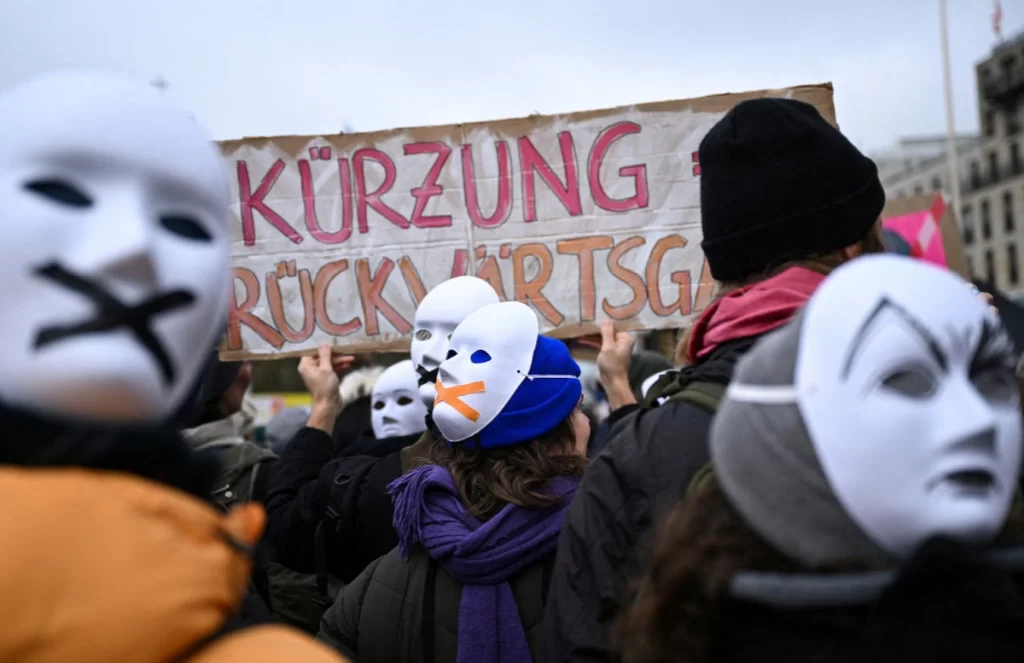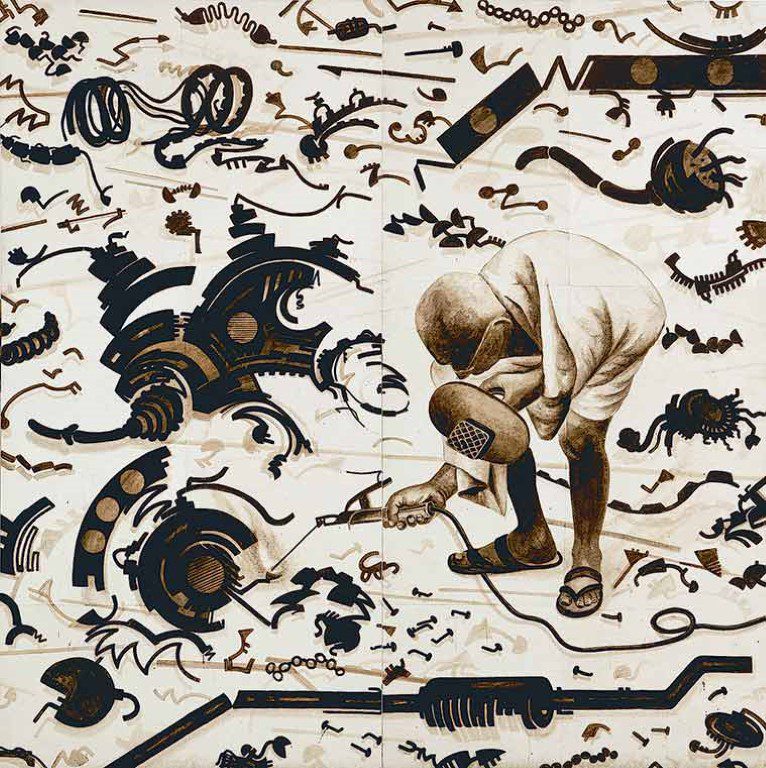Berlin City Government Cuts Cultural Funding
The Berlin city government moved forward with a reduction in its cultural funding, despite significant backlash and demonstrations from the arts community. The new financial plan for 2025 will cut approximately €130m from arts and culture, which is about 12% of the total budget, leading to concerns that some cultural institutions may be forced to shut down.
The initiatives most likely to be eliminated include diversity programs, outreach and education, as well as IT support. Concerns about job stability are now prevalent in various organizations, with others warning that the cuts may create a more cautious atmosphere for museum programs, making institutions hesitant to engage with politically charged exhibitions.
Will Berlin Lose its Cultural Currency?
Many believe that Berlin is at risk of losing its reputation as a cultural hub. Berlin’s mayor, Kai Wegner, defended the budget decision, stating that Berlin still has a “record budget” of €40bn and that these savings are not solely for financial balance but for the “future of Berlin.” He criticized the prior leftist administration’s “green dreams.” He demands that “we need a change of mentality in many areas, including culture.”
Emma Enderby on the Budget Cuts
For numerous arts organizations, immediate cuts are on the horizon. Some contracts may not be extended. Emma Enderby, the director of non-profit KW Institute for Contemporary Art says, “Culture and clubs bring people to Berlin. They don’t come here for the food, they come here for the history and the culture. We can’t form an endowment, which is how American institutions survive—this is illegal for publicly funded institutions in Germany. Most institutions can’t even carry funds across financial years. So, they would have to change the whole legal system in Germany to be able to support institutions to follow the US model.”

She states that the full budget has not yet been communicated, and will only be notified by mid-January. She predicts a grave effect on the artists and says “Artists are going to be hugely impacted, as many initiatives like studio spaces and residences that support them are also being removed or cut—which will completely change the attractiveness of coming to Berlin, an increasingly expensive city to live in. It’s very short notice, it also seems very short-sighted. In Berlin, culture costs around 2% of the overall economy, yet they’re cutting us between around 10% and in some cases 50%. We are letting certain positions go and closing certain programmatic initiatives, such as one of our mediation programmes,”
Some have been advised to adopt a philanthropic model similar to that of the United States, but, as Emma Enderby mentions, cultural institutions in Germany are set up quite differently. Many organizations, such as KW, lack dedicated departments for development that manage individual and corporate contributions.
Paul Spies on the Cultural Budget Cuts
Paul Spies, co-president of the Berlin Museums Association and former director of the Stiftung Stadtmuseum Berlin, notes that organizations may have to forgo some contractual commitments, leading to increased costs in the future, especially for those involved in ongoing construction projects.
He says, “Some institutions will have reserves they can use to overcome the initial drop in funding, but the majority don’t have much of a buffer. It was initially announced that diversity [programmes] were being completely cut, but there was such a backlash that it has been reinstated but at a very low level. It’s a very bad decision—pennywise and pound-foolish in every sense. And it’s been done so bluntly and without input from the cultural department. It doesn’t seem that the Senate has listened to the specialists about what is possible and what is not possible.”

Patricia Rahemipour on Berlin Government’s Decision
Patricia Rahemipour, the co-president of the Berlin Museums Association and director of the Institut für Museumsforschung, observes the division in Berlin’s cultural scene. She says, “The Senate has divided between those who produce culture such as theatres or opera and the museum landscape,” she says. “One of the biggest struggles for museums is our collections, which cost us 80% to 90% of our budgets. These are fixed costs, which means that programmes and exhibitions have to take a big hit.”
Image Courtesy – China Daily
Contributor





